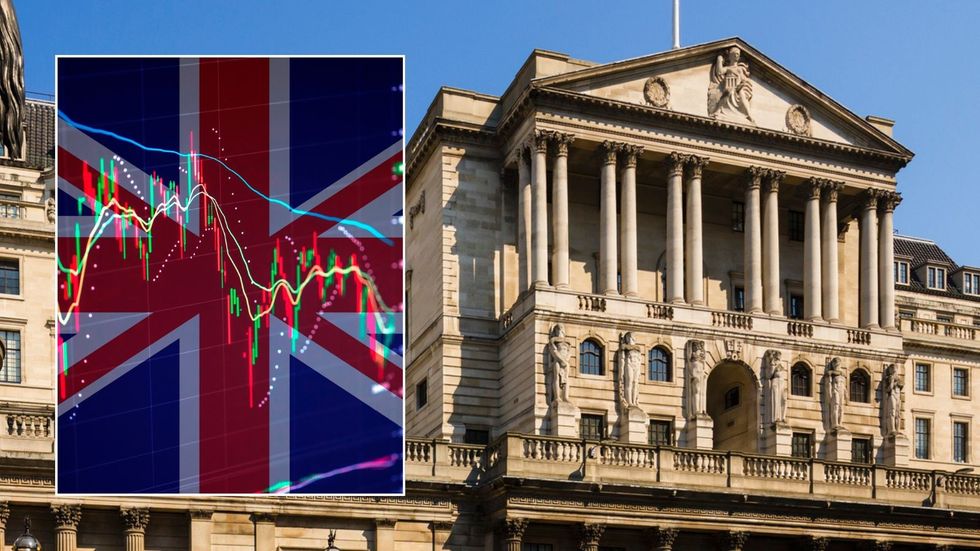Relief for homeowners as Bank of England given 'green light' for more interest rate cuts

Mortgage rates could come down further if the Bank of England makes base rate cut
|GETTY

Wage growth slowdown could pave way for potential interest rate cuts, offering hope to homeowners burdened by high mortgage payments
Don't Miss
Most Read
The Bank of England has received a "green light" for potential interest rate cuts, following the release of recent wage figures.
This development could bring welcome relief to homeowners struggling with high mortgage payments.
For the second consecutive month, pay growth has eased significantly, even as unemployment rates have slightly decreased.
Total pay growth has fallen to four per cent, its lowest level since November 2020.
Private sector regular wage growth, a key metric for the Bank of England, has dipped below five per cent for the first time since April 2022, settling at 4.9 per cent.
These figures suggest that inflationary pressures may be easing, potentially paving the way for the Bank to consider lowering interest rates in the coming months.
Do you have a money story you’d like to share? Get in touch by emailing money@gbnews.uk.
 Interest rate hikes have pushed up mortgage repayments for many | GETTY
Interest rate hikes have pushed up mortgage repayments for many | GETTY While the wage growth figures paint a positive picture, the unemployment data presents a more complex situation, according to analysts. The unemployment rate reportedly fell to 4.1 per cent in the three months to July, down from a peak of 4.4 per cent in May.
However, the Office for National Statistics (ONS) advises caution when interpreting these figures. Many analysts suggest June's reading may have been "spuriously low", artificially lowering the overall rate.
Other indicators point to a less optimistic labour market. Vacancies have fallen for the 26th consecutive month, and the number of payrolled employees contracted sharply in August, with 59,000 people falling out of employment.
Sanjay Raja, chief UK economist at Deutsche Bank, noted that the payroll figures suggest the unemployment rate "is not on a one-way road down".
Economists are divided on how to interpret the current labour market situation. Rob Wood, chief UK economist at Pantheon Macroeconomics, believes the wage figures give the Bank of England the "green light" to cut rates in November.
Ellie Henderson, an economist from Investec cautions, warned: "It is extremely difficult to clear through the fog and see a clear picture of the labour market at the moment, but the winds seem to be blowing towards looser conditions."
Business surveys, such as KMPG's report on jobs, indicate a slowdown in hiring activity. This adds to the complexity of the economic landscape.
While a September rate cut seems unlikely, most economists now anticipate the Bank will be in a position to reduce rates come November. This potential rate cut could provide significant relief for homeowners grappling with high mortgage payments.
The potential rate cut in November could have significant implications for homeowners and the broader economy. Lower interest rates typically lead to reduced mortgage payments, providing relief to those struggling with high housing costs.
As it stands, the Bank of England's base rate is sitting at five per cent after being slashed from 5.25 per cent last month.
LATEST DEVELOPMENTS:
 The Bank of England has begun to cut interest rates | GETTY
The Bank of England has begun to cut interest rates | GETTY For prospective homebuyers, a rate cut could improve affordability and potentially stimulate the housing market. Existing homeowners on variable-rate mortgages may see immediate benefits.
The broader economic impact could include increased consumer spending and business investment, as borrowing becomes cheaper. However, savers may face lower returns on their deposits.
Lower interest rates typically translate to reduced monthly mortgage costs, particularly for those on variable-rate mortgages.










